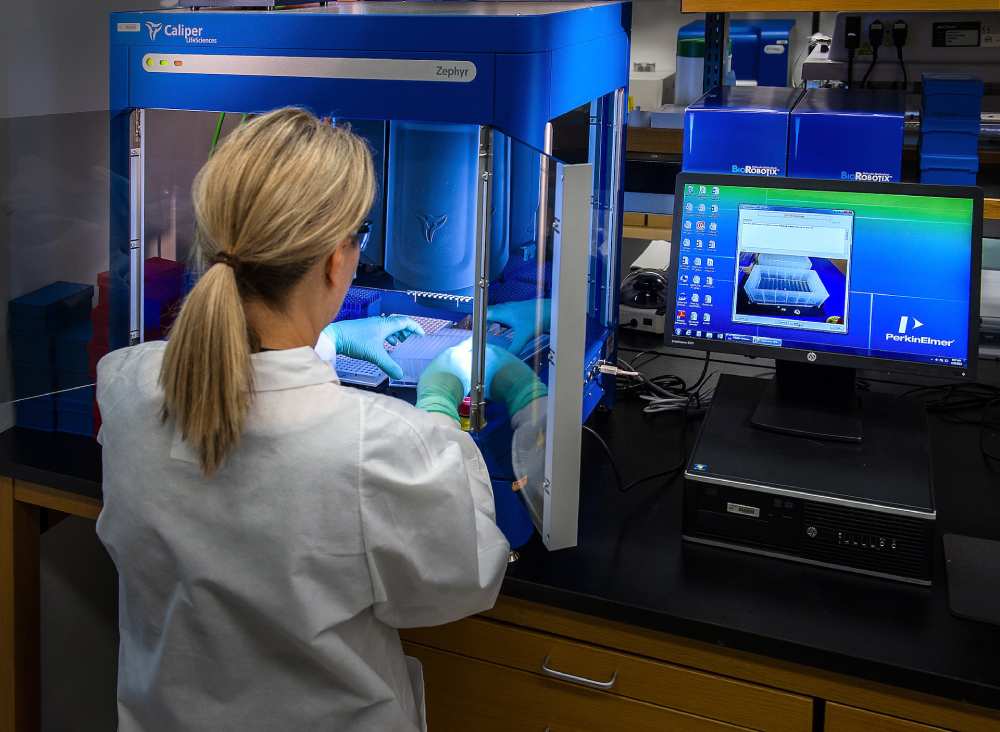
Real-Life Examples of AI in Healthcare
Using AI, medical professionals can gain insights that help deliver more accurate diagnoses and patient-centered care. These innovations also improve patient outcomes and streamline operations, saving time and money.
For example, an AI-enhanced microscope scours medical images for signs of harmful bacteria faster than humans and detects lung nodules 26% quicker than manually scanned patients.
Powered Medical Assistant
A virtual AI assistant can answer patients’ questions, triage symptoms, and provide medical advice. It can also help to manage medication by reminding patients about upcoming doctor appointments or prescription refills. It can even help monitor adherence and encourage patients to self-care.
AI technology can also be used to rewrite patient education materials to make them easier to understand. A communication assistant for prostate cancer improved patients’ understanding of diagnosis and treatment options, particularly for those with low literacy levels.
It can also help to personalize health information, providing customized suggestions for each patient based on their health history and preferences. For instance, a person with diabetes may receive information about better managing their condition through diet and exercise.
Triaging a patient’s symptoms by asking the appropriate questions and determining the most likely cause of their symptoms is one examples of AI in healthcare. Reducing needless trips to the emergency room may be beneficial.
Despite the potential benefits of AI healthcare, there are several challenges associated with this new technology. One of the most serious is that AI systems can be prone to bias, especially if trained with skewed datasets. It can lead to biased recommendations, causing harm to patients. However, this can be avoided if healthcare institutions carefully screen and curate the data fed to AI tools.
Powered Patient Education
Medical professionals must spend much time teaching patients about their health conditions and treatment options. AI can help by delivering more precise information to patients and supporting healthcare providers during discussions with them. AI can also monitor a patient’s condition and detect deviations from average health metrics, enabling medical professionals to act fast and prevent complications.
In addition, AI is helping physicians catch diseases more quickly by analyzing data from tests and providing better support for diagnosis. It is particularly true for progressive and potentially life-threatening diseases like pulmonary hypertension (PH) and cardiac amyloidosis, which often have similar symptoms to more common illnesses.
Finally, AI is enhancing research and development by making it easier to find locations and hospitals with populations that are representative of those affected by disease. It helps researchers prioritize recruiting patients for clinical trials.
AI can also help streamline healthcare processes and improve efficiencies, allowing doctors to treat more patients daily and avoid costly errors. It is a significant benefit for insurance companies, as it can process claims more efficiently and reduce fraudulent transactions. Similarly, healthcare facilities can save money by efficiently managing patient flow, such as AI-enhanced solutions to identify and solve mid-revenue cycle leakages.
Powered Patient Engagement
Often, patients have questions outside of regular business hours. AI can provide around-the-clock support through chatbots that are available 24/7, answering simple questions and providing resources. It can allow providers to focus on more complex issues and improve patient satisfaction.
AI can also help monitor a patient’s health, detecting signs of a potential issue and providing alerts. For example, some wearable devices can track a patient’s heart rate and activity levels, sending that information to the physician for further review. It can help to identify any health changes and potentially save lives.
In the healthcare industry, AI can enhance data management and analytics efficiency. For instance, AI can automate the processes involved in gathering, archiving, reformatting, and tracking medical records to enable faster access to clinically relevant data. It can be used to evaluate medical documents like patient notes and reports, external research, and clinical experience to assist with selecting the best and most customized therapy.
Additionally, the use of AI can also be applied to interpreting medical images to speed up diagnosis and improve outcomes.
Powered Patient Flow
The application of AI in healthcare can streamline workflows and reduce the amount of time doctors spend on administrative tasks. It can also analyze patient data, identifying patterns and trends that could lead to complications. This information can be incorporated into a medical treatment plan. AI can also improve patient outcomes by assisting with diagnosis and accelerating research. It can detect patterns in clinical trials that would be difficult for humans to identify and alert physicians to potential problems.
In the emergency department (ED), AI can help physicians interpret clinical data faster and assess a patient’s urgency. Based on remote ECG monitoring can flag readings that require immediate attention, such as atrial fibrillation. It saves doctors valuable time, which allows them to provide quicker and more accurate diagnoses to their patients.
Similarly, a healthcare AI solution automates coding and billing processes, helping to improve workflow efficiency and reduce errors. It can also predict a patient’s discharge date and optimize staff schedules.
The use of AI in healthcare has many benefits, but some challenges must be addressed before it can be fully implemented. These include algorithmic bias, Do-not-resuscitate implications, and other machine morality issues. To address these concerns, involving patients and clinicians in designing and developing healthcare AI solutions is critical.
